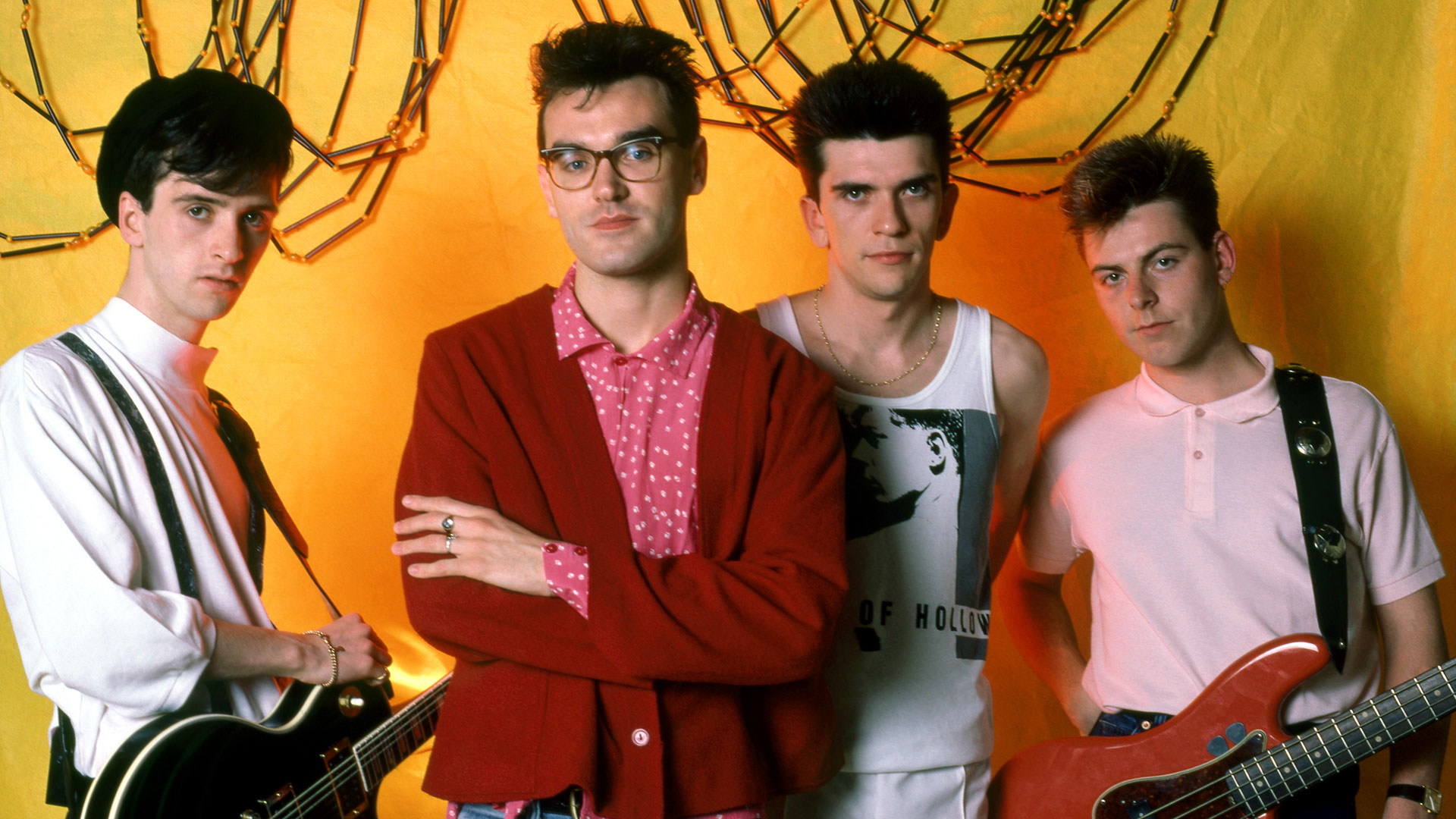Andy Rourke, bassist with The Smiths, dies aged 59
Smiths guitarist Johnny Marr has led tributes to the man he says “reinvented what it is to be a bass guitar player”

All the latest guitar news, interviews, lessons, reviews, deals and more, direct to your inbox!
You are now subscribed
Your newsletter sign-up was successful
Andy Rourke, best known as the bassist for UK indie icons The Smiths, has passed away aged 59, following a diagnosis with pancreatic cancer.
Johnny Marr initially announced the news via his social media channels, posting it alongside a picture of a youthful Rourke from the band’s early days, holding his Fender Precision bass.
“It is with deep sadness that we announce the passing of Andy Rourke after a lengthy illness with pancreatic cancer,” wrote Marr. “Andy will be remembered as a kind and beautiful soul by those who knew him and as a supremely gifted musician by music fans. We request privacy at this sad time.”
It is with deep sadness that we announce the passing of Andy Rourke after a lengthy illness with pancreatic cancer. Andy will be remembered as a kind and beautiful soul by those who knew him and as a supremely gifted musician by music fans. We request privacy at this sad time pic.twitter.com/KNehQxXoFzMay 19, 2023
Rourke was born in 1964. He grew up in Manchester and became a childhood friend of Marr’s, after the two met in 1975. Later Marr would live with Rourke, moving in at age 15.
“Andy and I spent all our time studying music, having fun, and working on becoming the best musicians we could possibly be,” said Marr in his full tribute post.
“Back then Andy was a guitar player and a good one at that, but it was when he picked up the bass that he would find his true calling and his singular talent would flourish.”
Rourke joined The Smiths in time to record their first ever demo and remained with the group throughout their career, developing a distinctive bouncing, melodic style that proved an ideal foil to Marr’s jangling, experimental guitar work.
All the latest guitar news, interviews, lessons, reviews, deals and more, direct to your inbox!
As is so often the case with bass players, it’s fair to say that Rourke’s contribution was at times overshadowed by Marr’s innovative six-string work and vocalist Morrissey’s talent for a biting lyric and drawing the proverbial spotlight.
Nonetheless, Rourke’s energetic lines were the propelling force in early hits like This Charming Man, while the likes of Heaven Knows I’m Miserable Now and the formidable Barbarism Begins At Home show an ear capable of cribbing more than a few funk and soul licks.
The track widely considered to be Marr’s masterwork, How Soon Is Now?, is so laden with thickly layered guitar tracks that many bass players would have struggled to find room. Not Rourke, though – who opted for an almost Meters-like percussive bass line, adding a swaggering counterpoint to the guitarist’s siren-like slides.
Essentially, Rourke is the reason you can dance to The Smiths.
The bassist was not immune to the pitfalls of the rock lifestyle, though, and was arrested for heroin possession in the ’80s – which led to him briefly getting sacked from the band in 1986, though he rejoined in time for the release of the band's seminal LP, The Queen Is Dead.
Following the breakup of The Smiths the following year, Rourke continued to play with Morrissey in the frontman’s early solo work, before undertaking various stints with other artists, among them Sinead O’Connor, The Pretenders, Killing Joke, and fellow Mancunian songwriter Badly Drawn Boy.
He also formed Freebass in the mid-2000s alongside fellow Manchester bass icons Peter Hook and Mani (formerly of New Order and The Stone Roses, respectively), and worked as a DJ on UK radio station XFM.
“Andy reinvented what it is to be a bass guitar player,” Marr wrote in his tribute. “I was present at every one of Andy’s bass takes on every Smiths session. Sometimes I was there as the producer and sometimes just as his proud mate and cheerleader.
“Watching him play those dazzling bass lines was an absolute privilege and genuinely something to behold. But one time which always comes to mind was when I sat next to him at the mixing desk watching him play his bass on the song The Queen Is Dead. It was so impressive that I said to myself ‘I’ll never forget this moment.'’’
Read Marr’s full tribute post below.
A post shared by Johnny Marr (@johnnymarrgram)
A photo posted by on

Matt is Deputy Editor for GuitarWorld.com. Before that he spent 10 years as a freelance music journalist, interviewing artists for the likes of Total Guitar, Guitarist, Guitar World, MusicRadar, NME.com, DJ Mag and Electronic Sound. In 2020, he launched CreativeMoney.co.uk, which aims to share the ideas that make creative lifestyles more sustainable. He plays guitar, but should not be allowed near your delay pedals.
